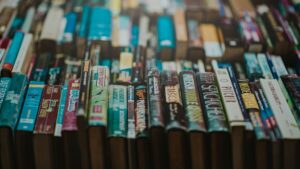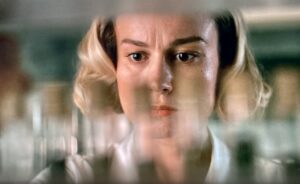“The Family Trade” by Justin Jordan, Nikki Ryan, Morgan Beem and Rachel Deering centers on a fascinating scenario: what if a family of assassins was in charge of the political checks and balances on the ruling elite of a neutral, floating island where world leaders come to meet on neutral soil?
The comic follows a female assassin as she tries to maintain order in her floating city. One man, whose speeches have clear and purposeful Donald Trump-like rhetoric, wants control over everything and it’s her job to stop him.
The villain in the comic being a clear nod to Trump is fascinating. Rarely does it feel like politics are present in superhero style comics and it’s an even greater rarity to actually name the politician who is being alluded to. The man in the comic, named Stagger Berghardt, speaks of “making the float glorious again” and says, “They [the government] help outlanders, they help the indigent. But if you work? If you’re plain and honest? You get left behind.” Berghardt is described as “weaving in just enough truth and then appealing to their fears. And rich enough to get away with it.”
The comic follows the female assassin, who is nameless throughout, as she is advised by her uncle and “the bookmaker” on how to rid the island of Berghardt without killing him, so as to keep the island neutral and peaceful. The comic culminates at a Berghardt speech and rally, where things escalate up to a cliffhanger that screams for a sequel.
The plot does not go overboard. It does not get too complicated and there aren’t too many characters. The authors did not overcomplicate it and were confident in the story, and it shows. It feels as if the authors had a good idea and knew it was a good idea. They didn’t hurt the story by trying to get too elaborate with the plot and the characters.
But “The Family Trade” also doesn’t give everything to the reader. There are many points throughout the comic that the reader can easily become confused, but the comic does the perfect job of keeping the reader in the dark and then hitting them with information about the world the comic takes place in.
The illustrations in “The Family Trade” are not blatantly obvious. They’re somewhat vague and really force the reader to think about what he or she is reading. While there isn’t an overwhelming amount of text, there were instances where it helped to go back and reread, because every bit of text feels like it holds a significant amount of importance.
“The Family Trade” caricatures Donald Trump in a way that is scarily real. There’s nothing funny about the Berghardt character. It is a monster they truly fear and a true danger to their society. Luckily the democracy of the United States is a little less fragile than the one in the comic.













